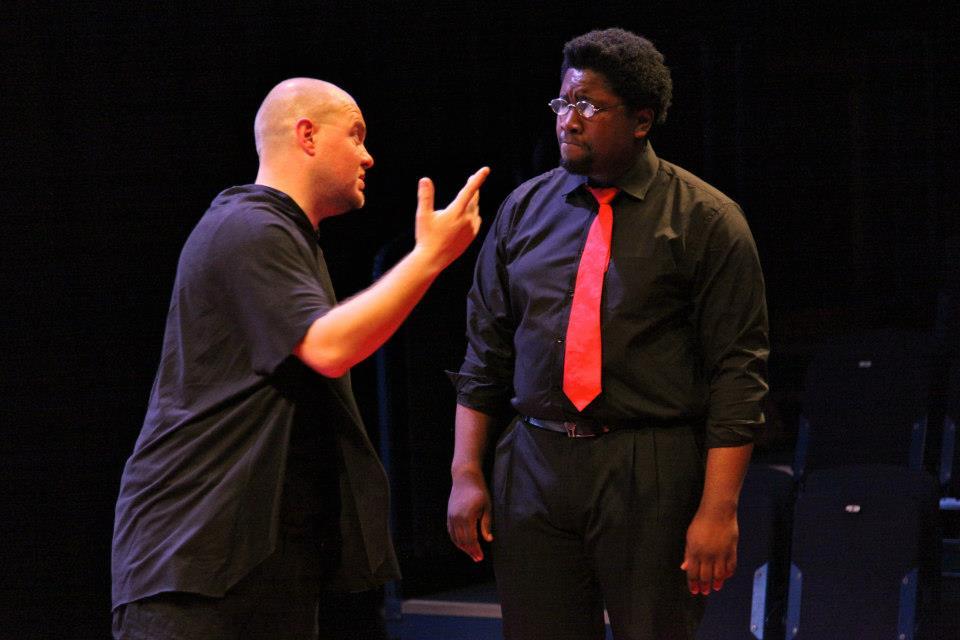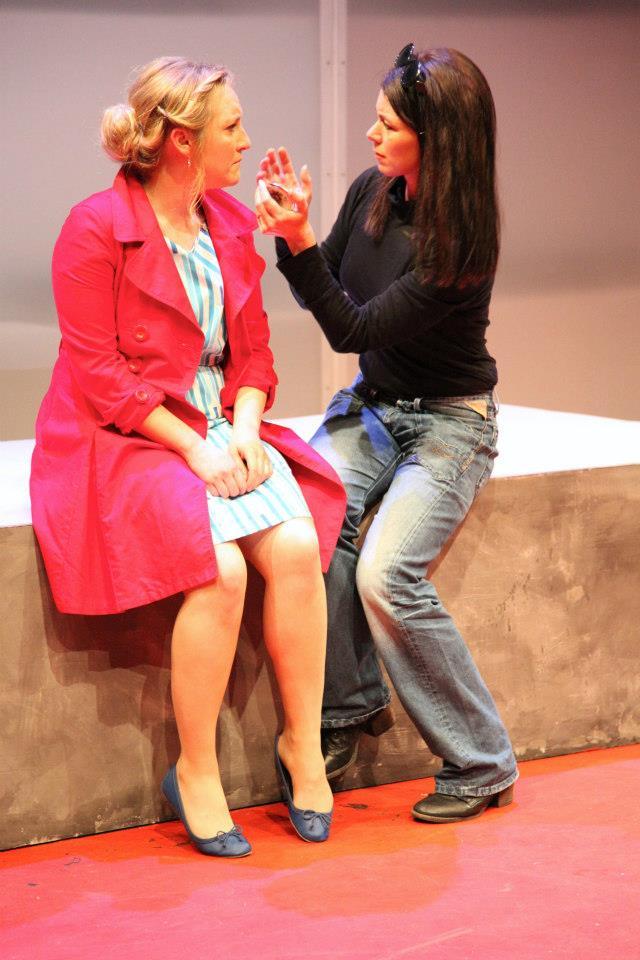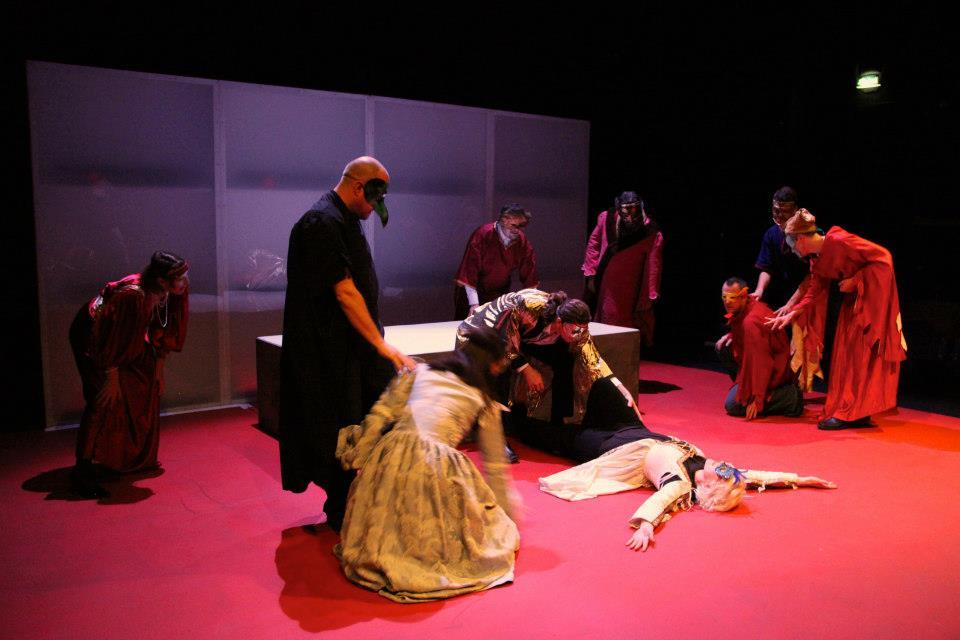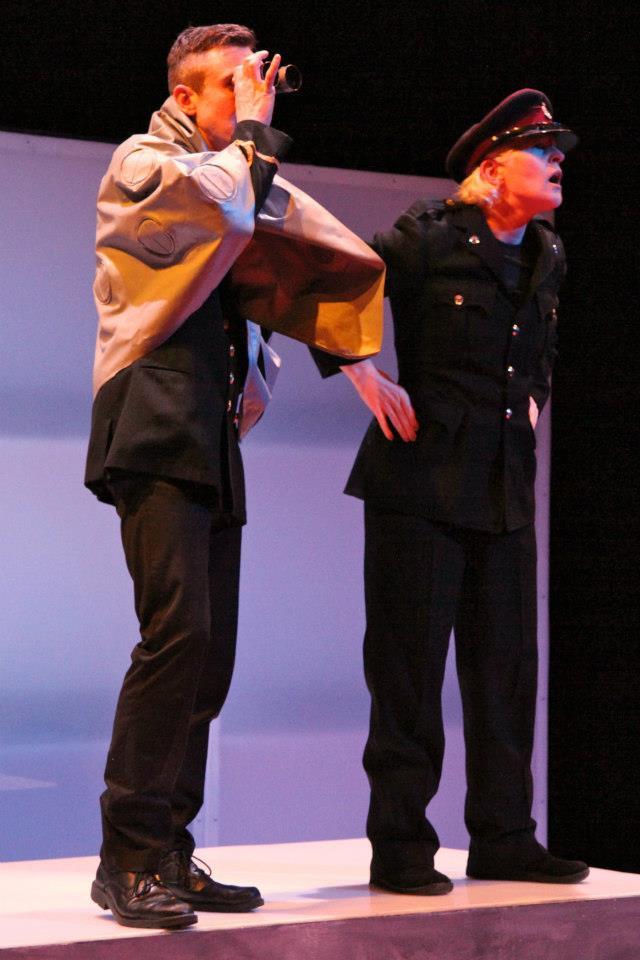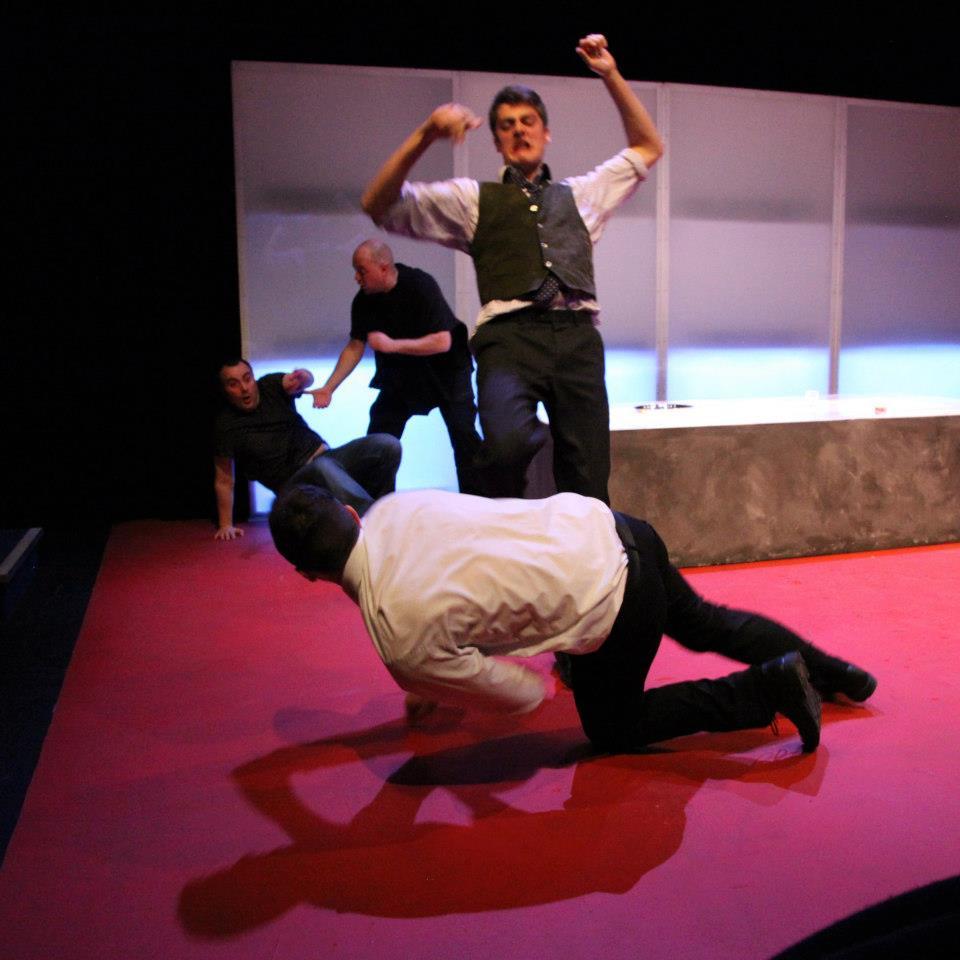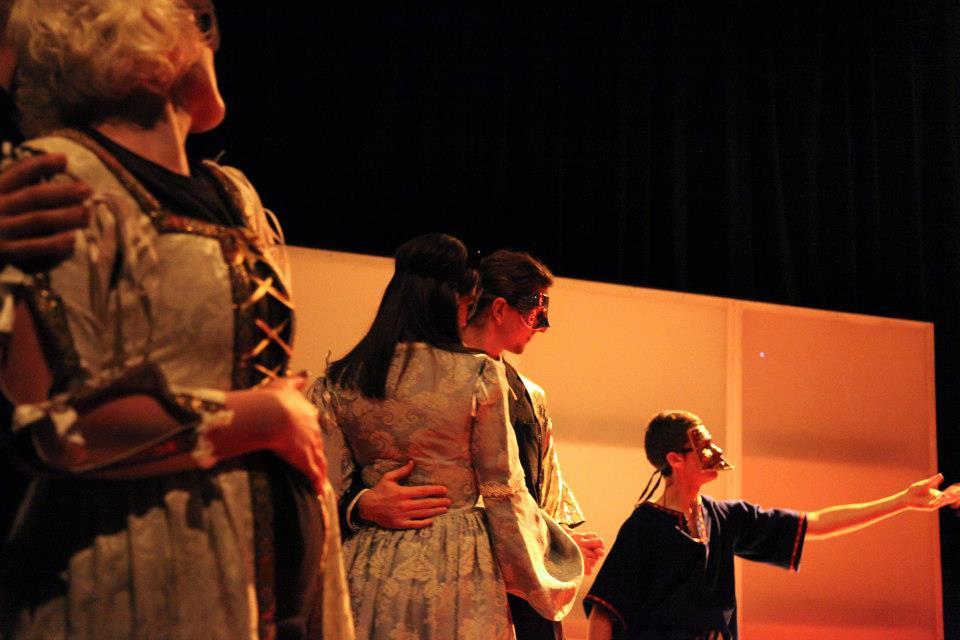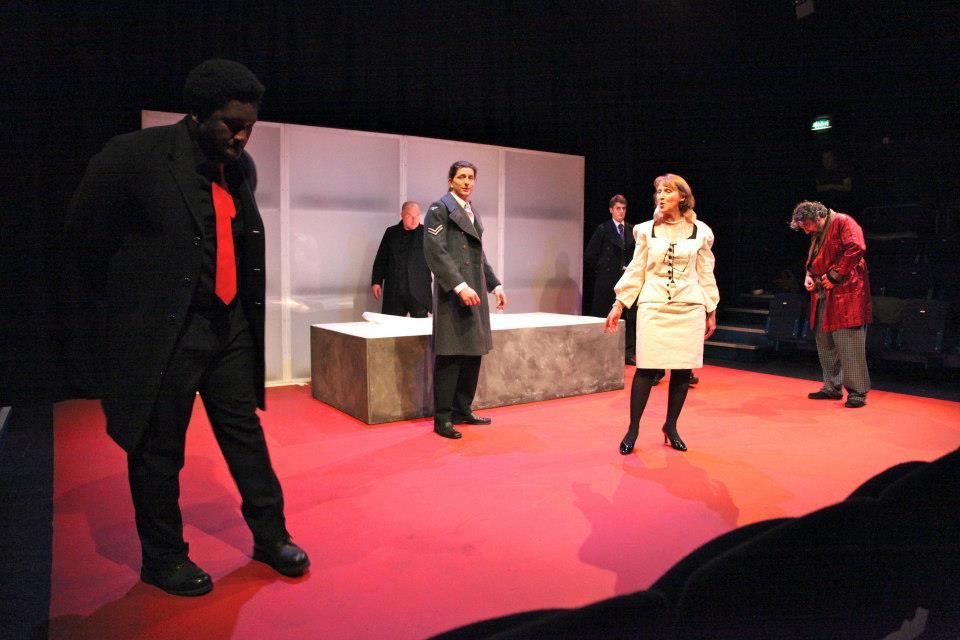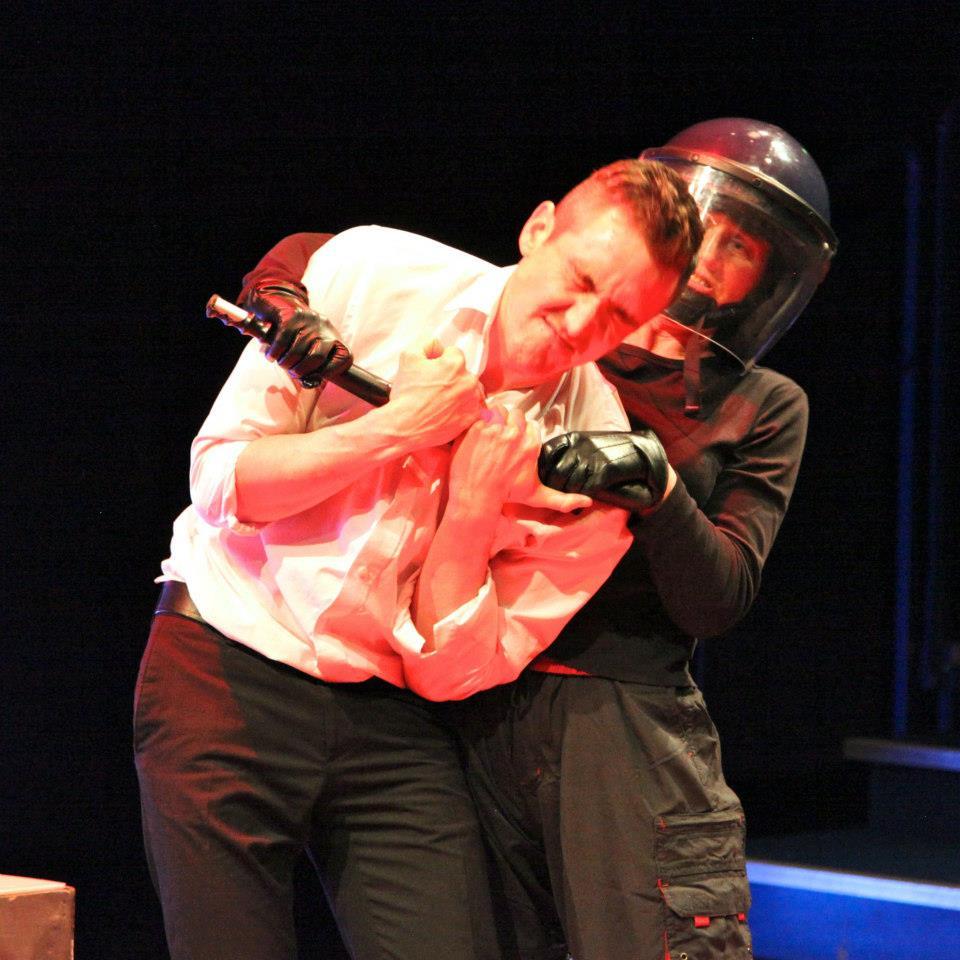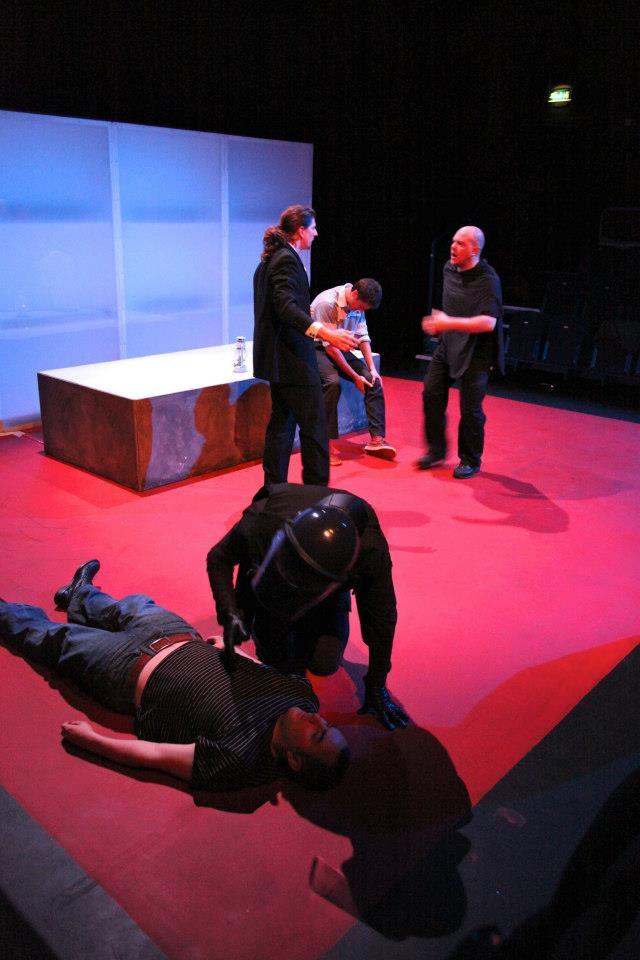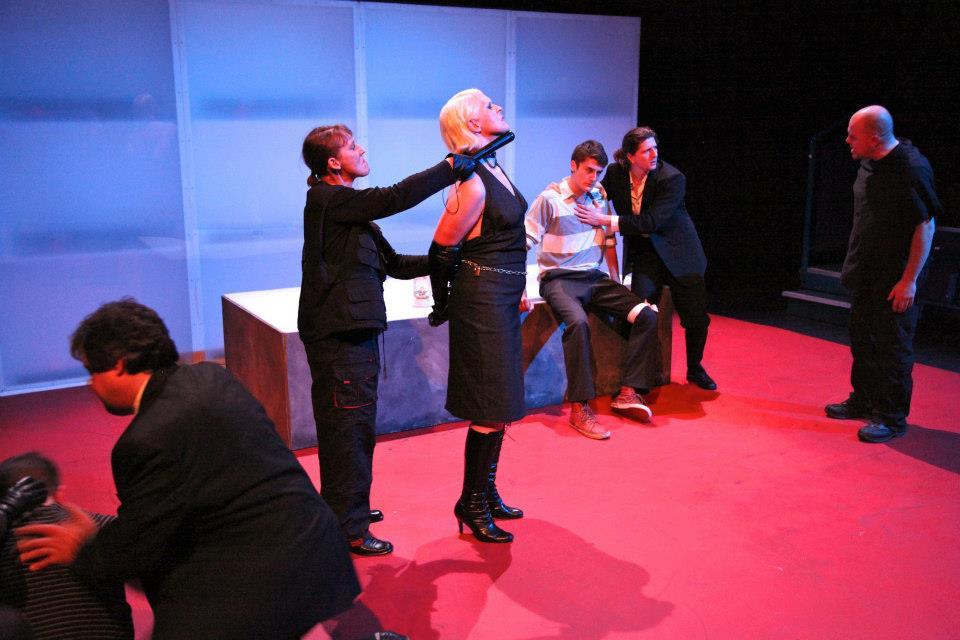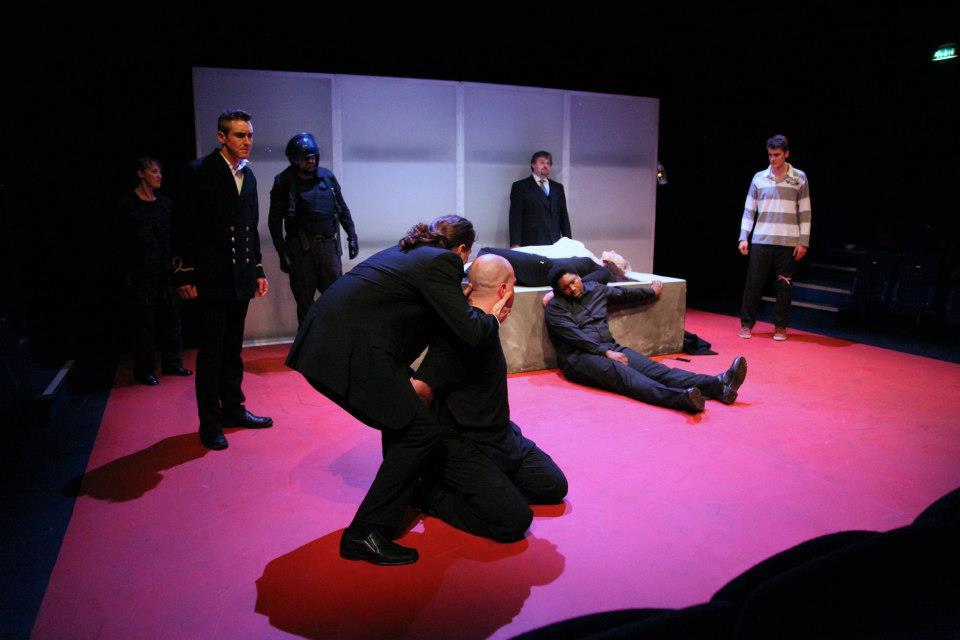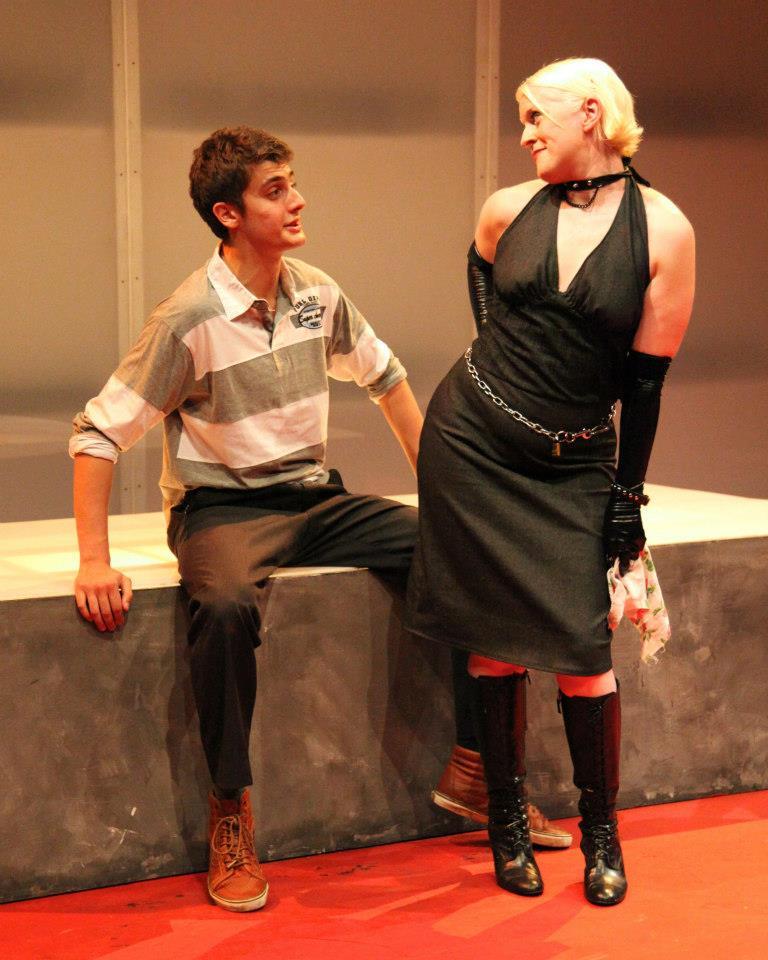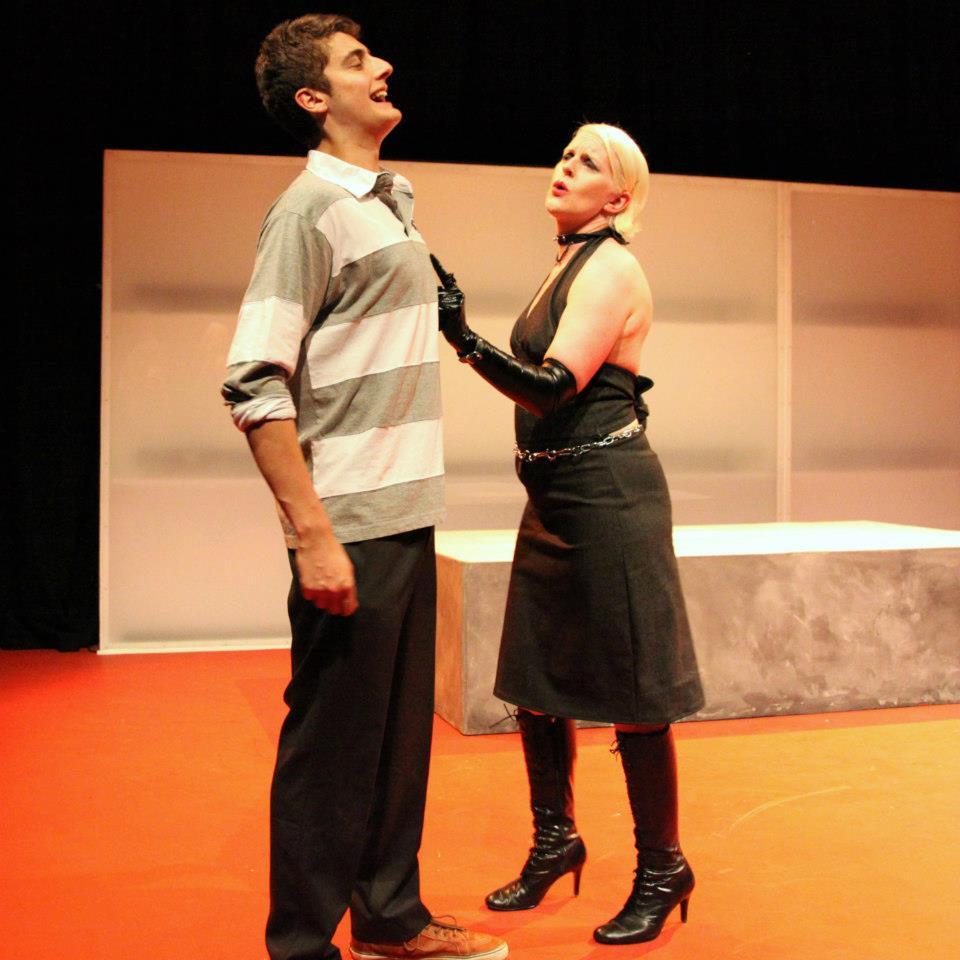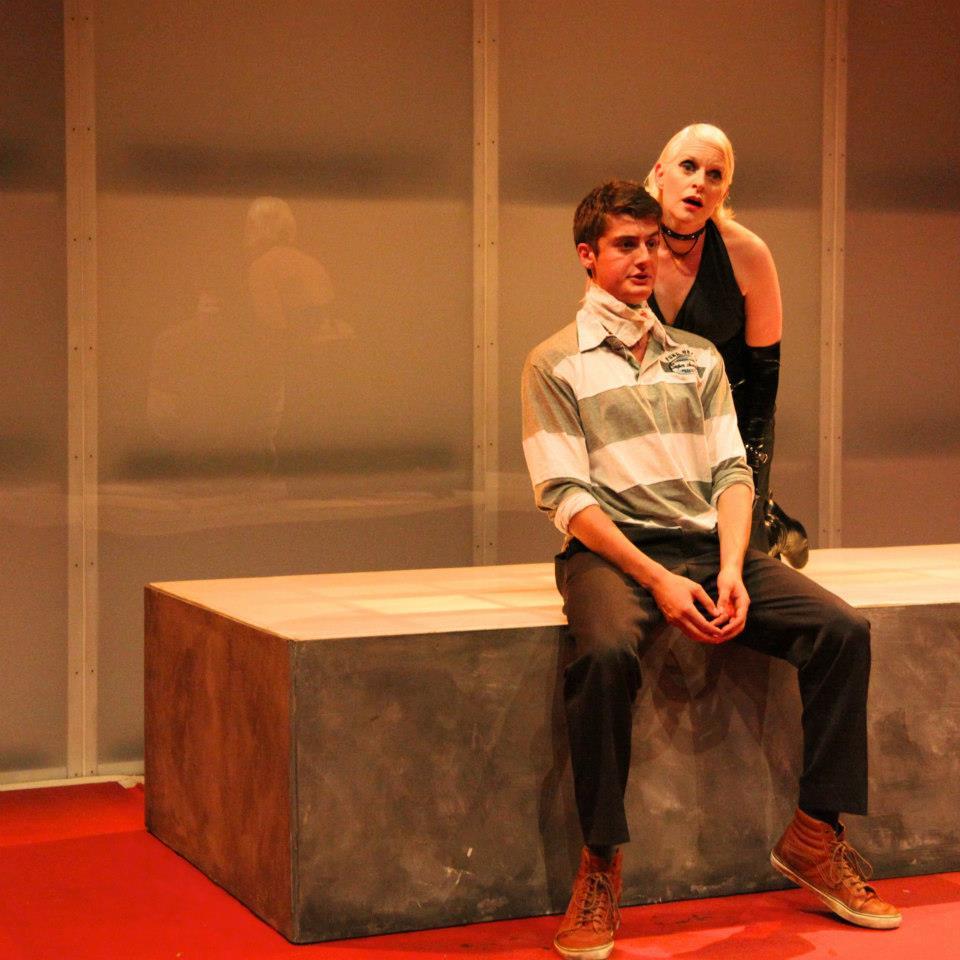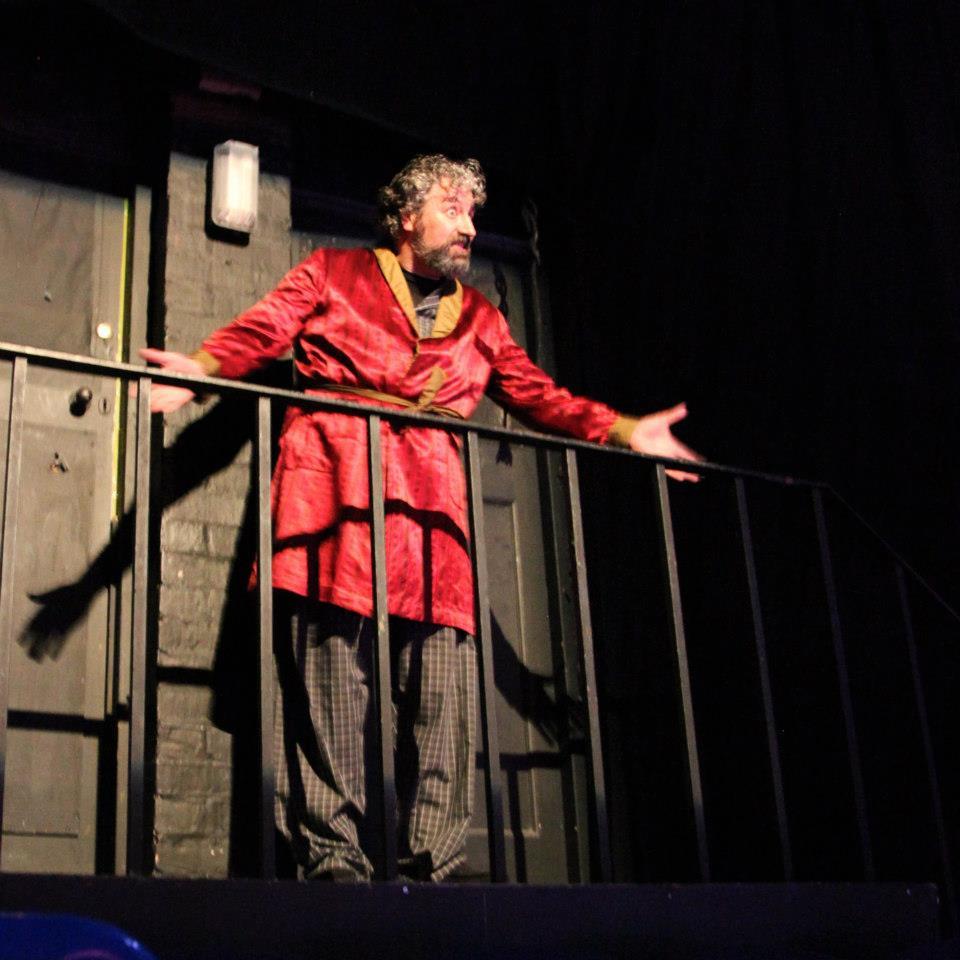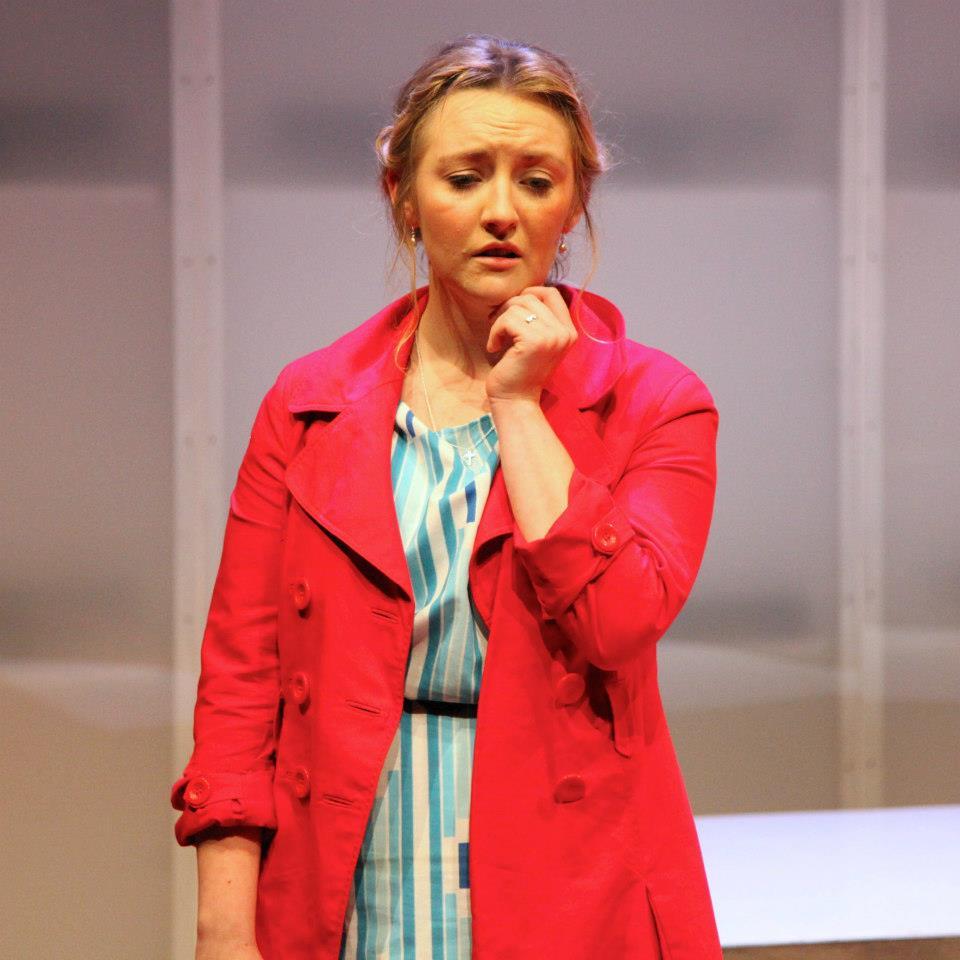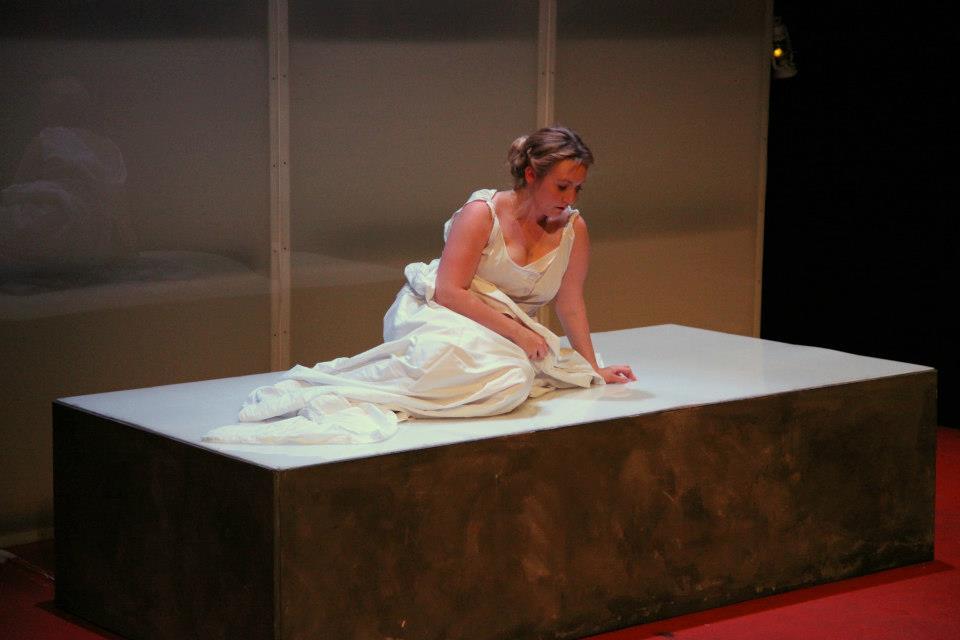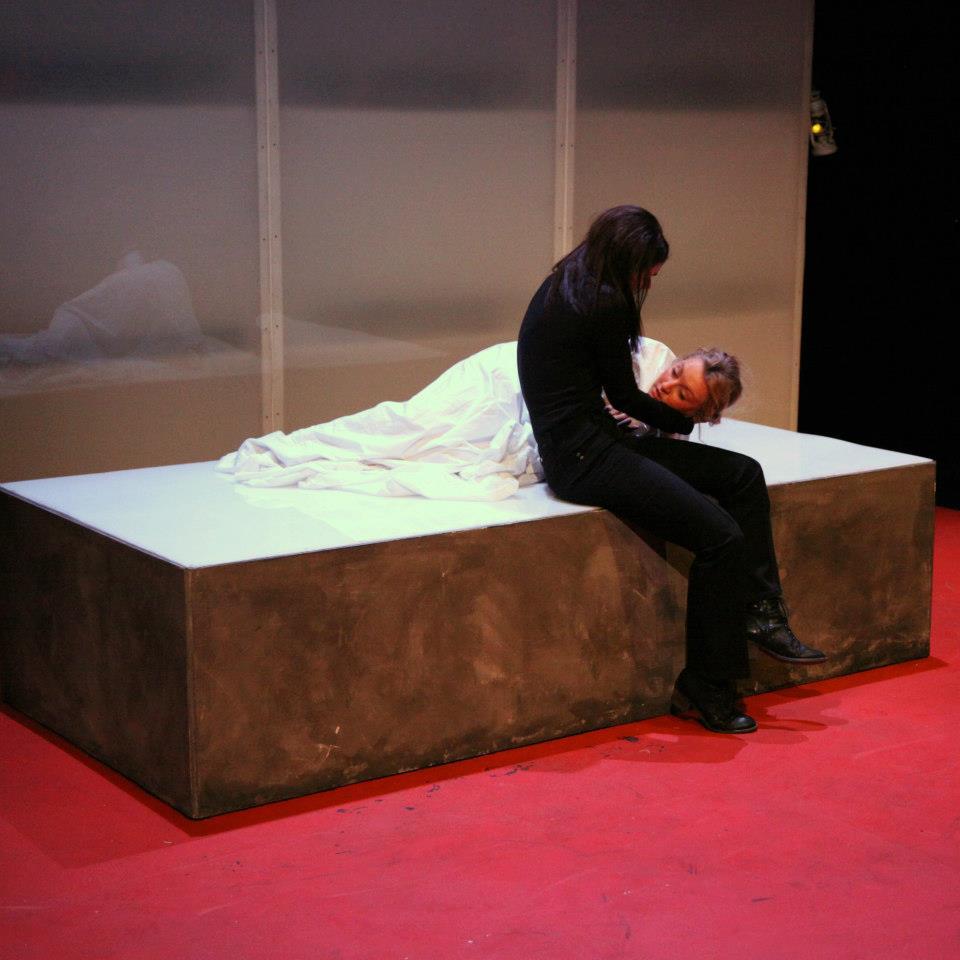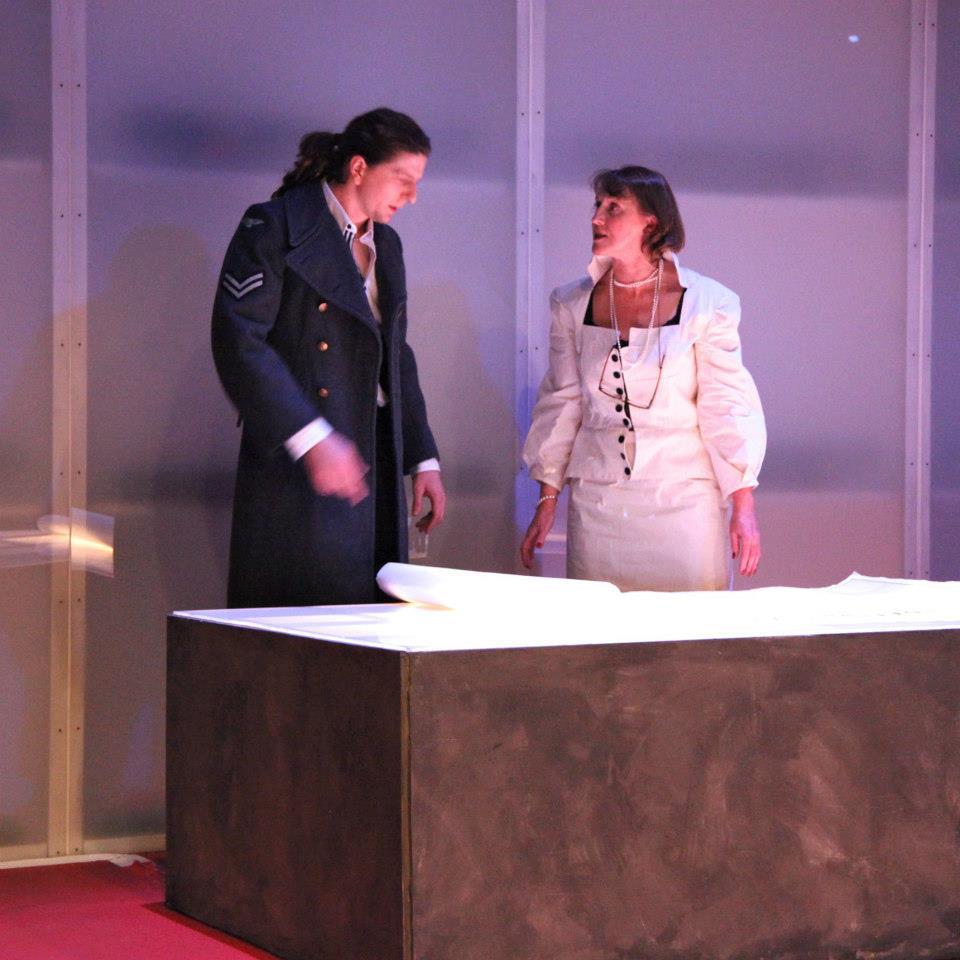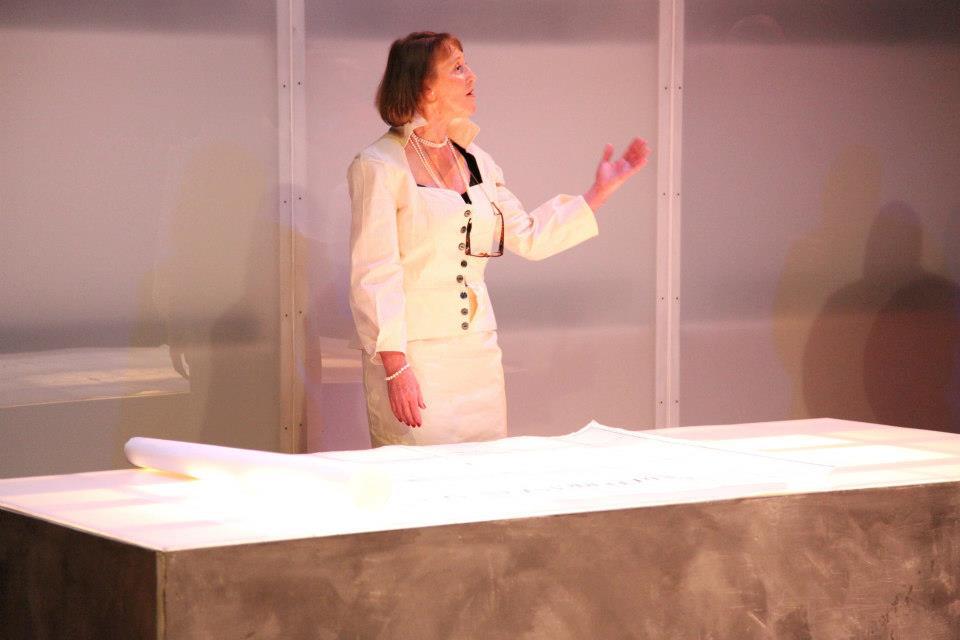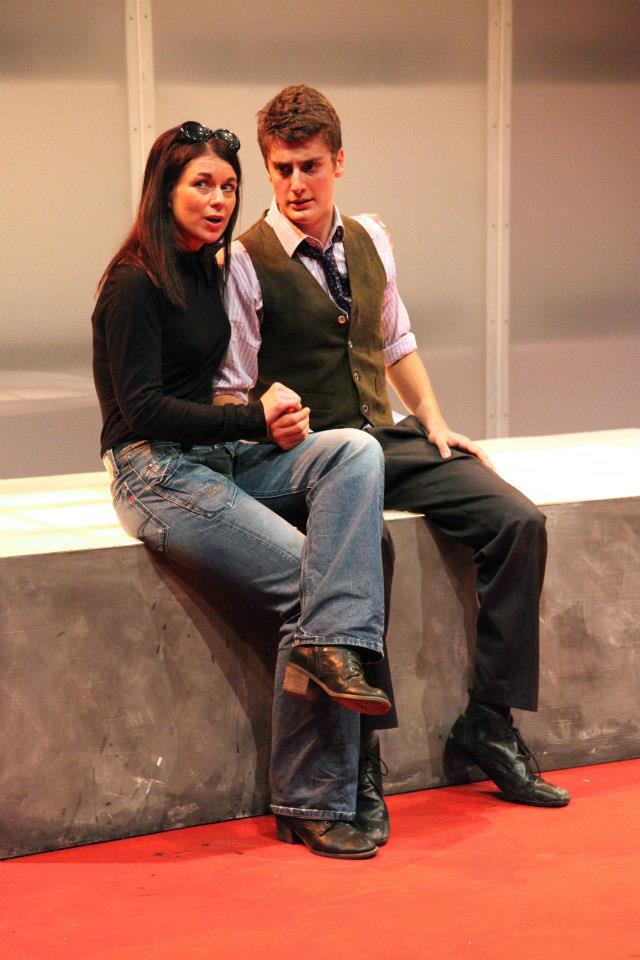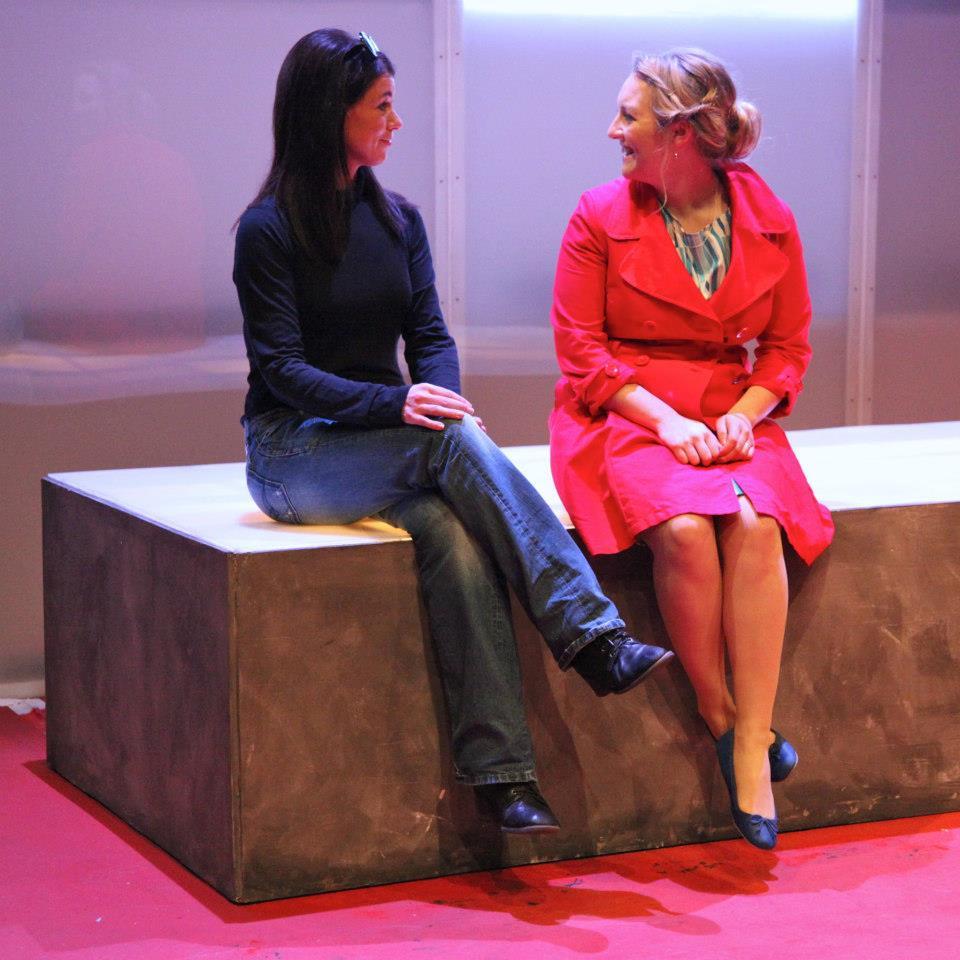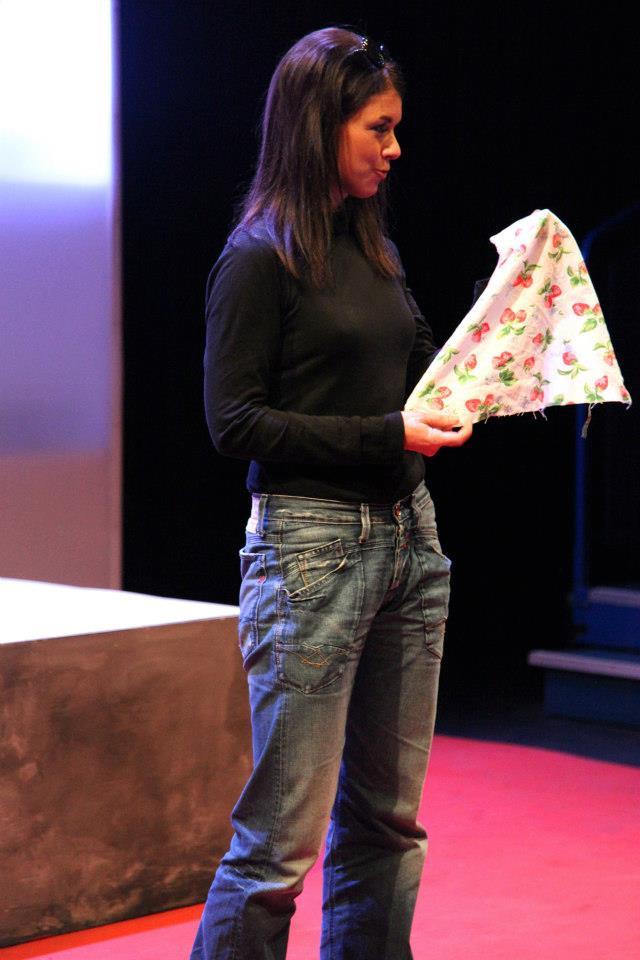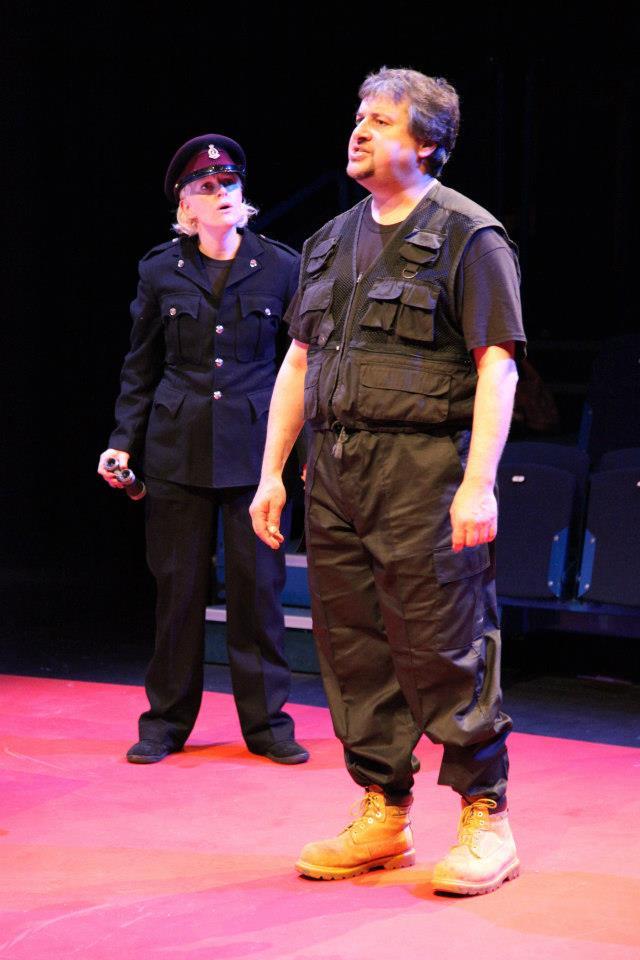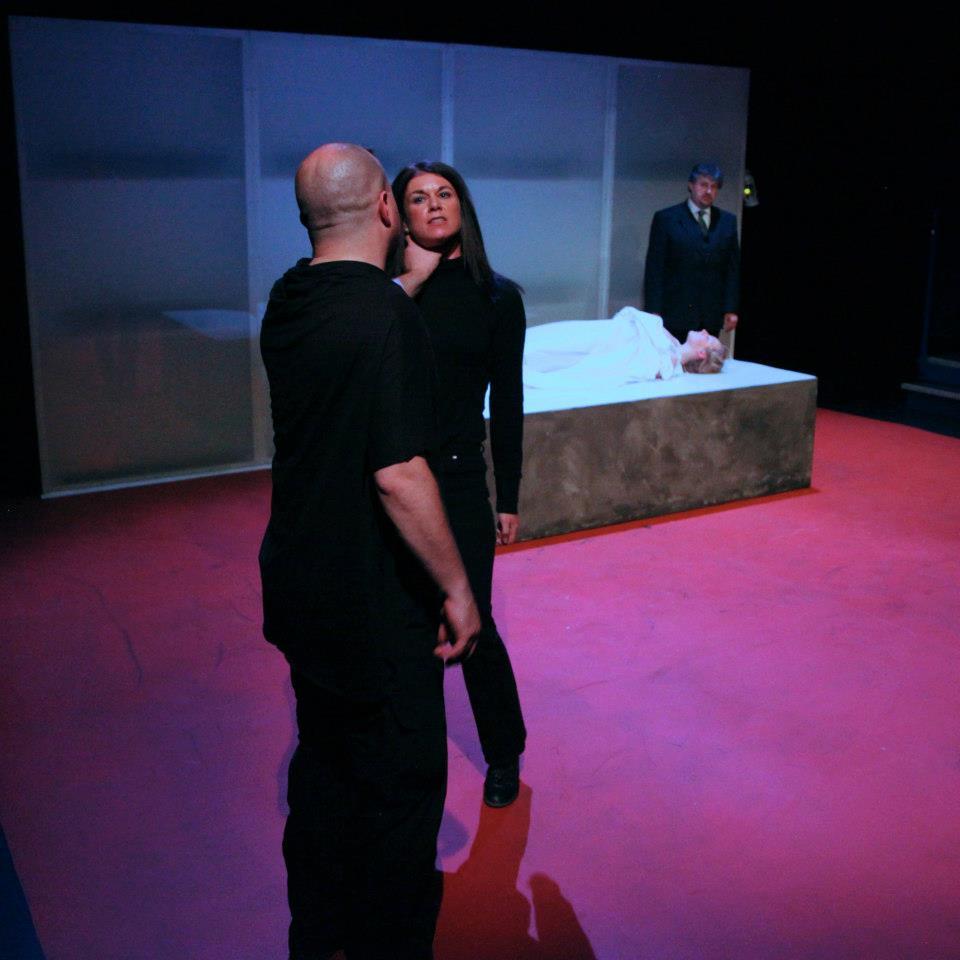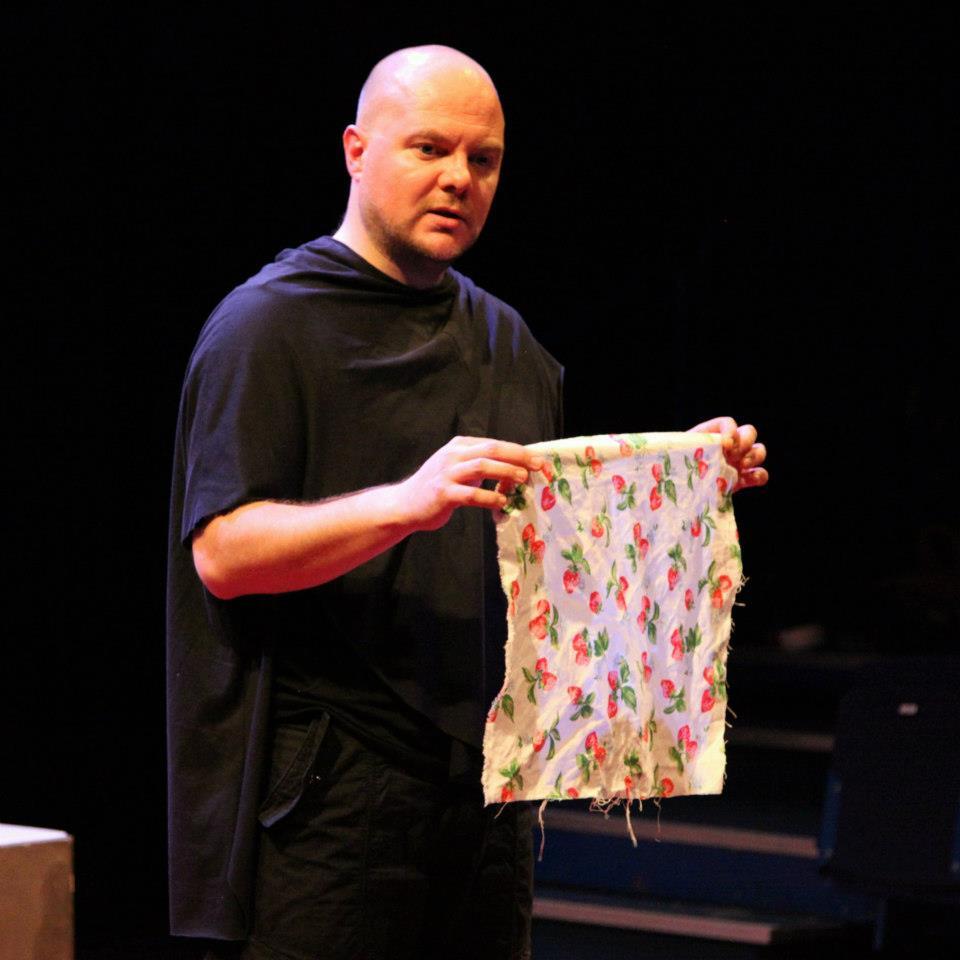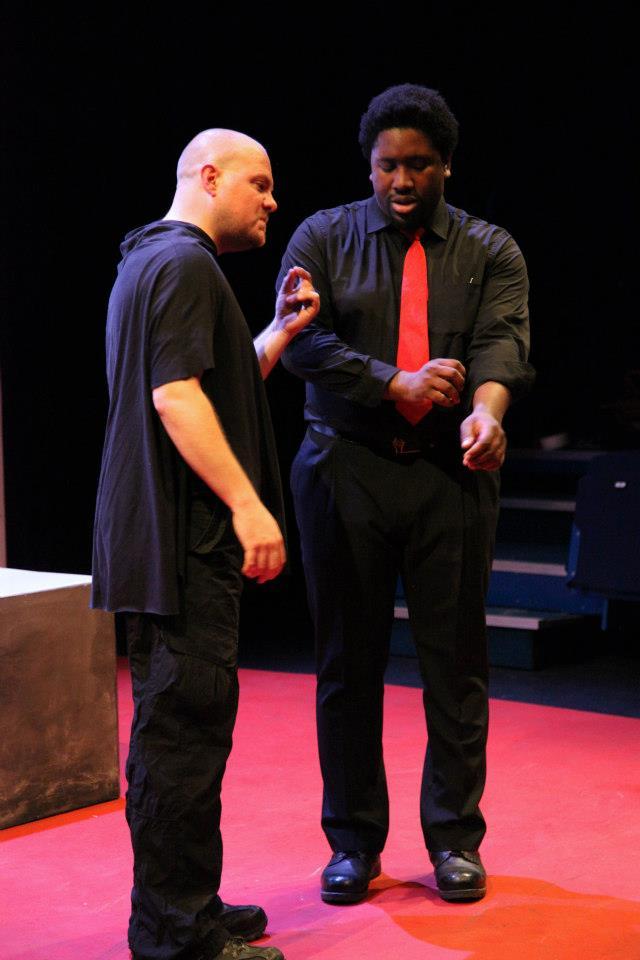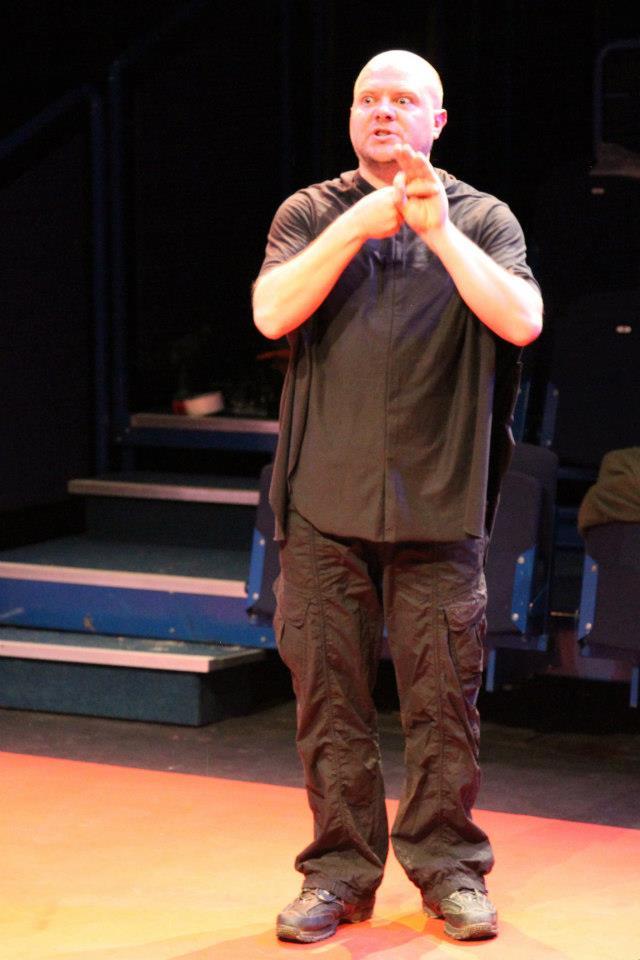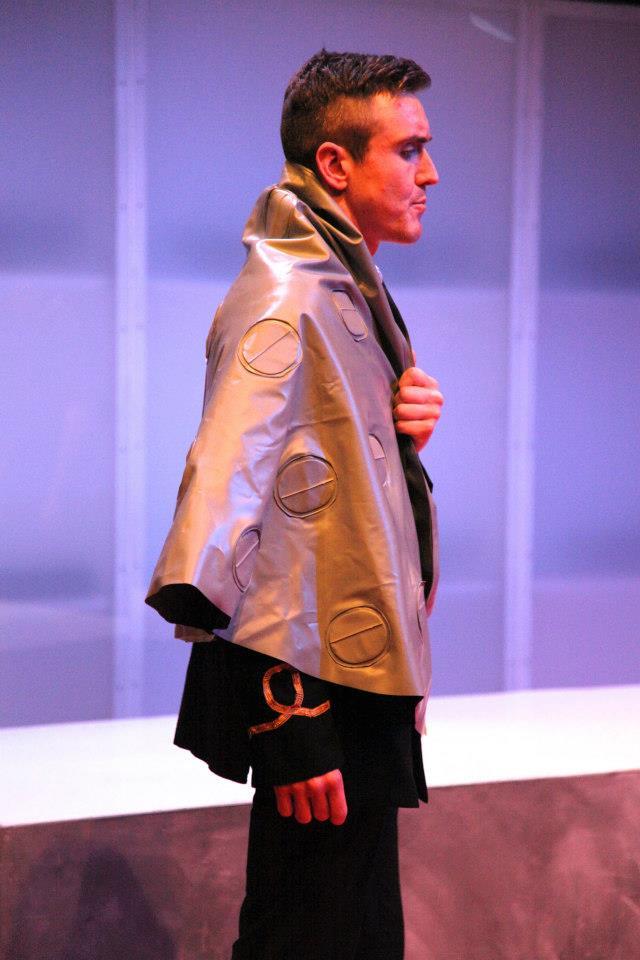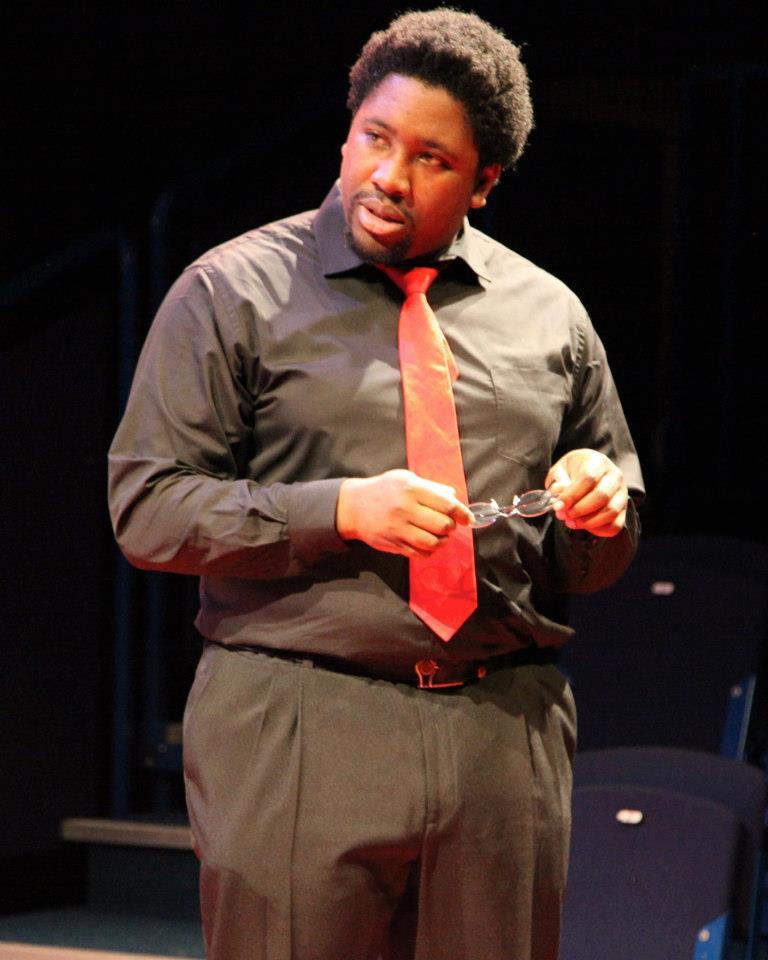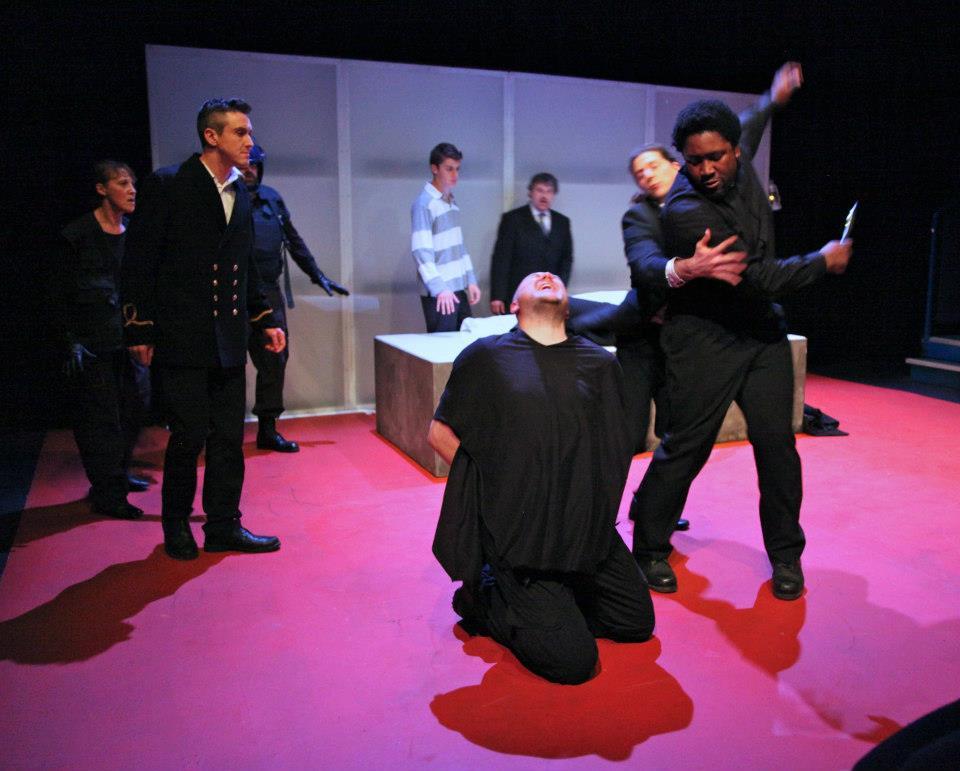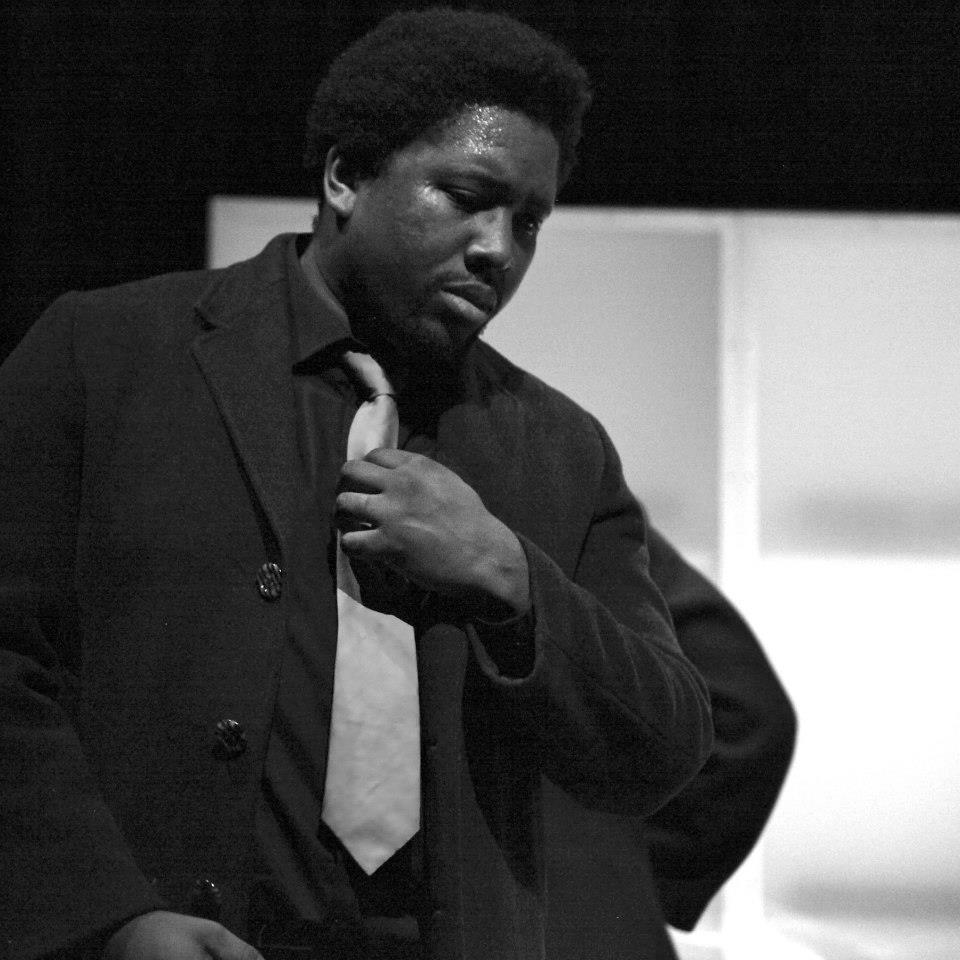Othello
Tuesday 23rd October to Saturday 27th October 2012 (7 performances). The Studio at York Theatre Royal
Photographs by Michael Oakes.
Cast
Othello: Dermot Daly
Brabantio: Maurice Crichton
Cassio: Peter Watts
Iago: Jamie Smelt
Roderigo: Jonathan Bedford
Duke of Venice: Beryl Nairn
Montano: Matthew Wignall
Lodovico: Neil Tattersall
Gratiano: Clive Lyons
Desdemona: Katie Macintyre
Emilia: Victoria Delaney
Bianca: Gemma Head
Other parts played by members of the company
Crew and Creative Team
Director: Mark France
Designer: Simon Jarvis
Music and Sound Design: Kingsley Ash
Lighting Design: Kelli Zezulka
Costume Design: Jenny Draper
Assisted by: Whitney Ivey
Assistant Director: Tess Farley
Fight Director: Neil Tattersall
Assisted by: Stuart Perry
Stage Manager: Hannah Schembri
Assisted by: Alex Baldry, Claire Morley
Makeup: Chloe Barr
Set Construction: Nigel Smith, Andy Field, Simon Jarvis, Cath Doman
Project Liaison for YSP: Maurice Crichton
Press and Publicity: Rachel Alexander-Hill
Poster and Flier Design: Andy Curry
Programme: Jim Stafford
York press review by Charles Hutchinson
God, but Othello’s a bleak play.
It is bleak not because of the credulous stupidity of the title character – a man so fragile in his sense of self, so insecure, that he is convinced on the flimsiest evidence that the blameless wife who loves him is a faithless deceiver. It is bleak because of what Shakespeare shows us, through the matchless malice of Iago, about the darkest, ugliest workings of our own souls.
In the course of five acts Othello, man of action, romantic hero and warrior, is reduced to a shambling, murderous, self-pitying wreck. But what Shakespeare exposes for us isn’t just the weakness beneath the seeming strength of this one man, it is the weakness based on fear that lurks in us all.
The destruction of Othello begins with five short words. “Ha! I like not that!” says Iago, the general’s trusted third in command, apparently overhearing some whispered words between Othello’s wife, Desdemona, and the dashing lieutenant Cassio.
“What dost thou say?” replies Othello, instantly alert. The seeds of jealousy are planted.
In some of the greatest scenes in English literature, Iago then snares his victim, weaving a tissue-thin tapestry of lies and hints that leads, ultimately, to the most brutal of murders – Othello strangling his wife while she piteously begs him to ‘‘Kill me tomorrow! Let me live tonight. Just half an hour!”
And why does Iago do all this? Superficially out of envy and ambition – he’s been overlooked for the position of Othello’s second in command. There is also an element of racism – though others in the play are more racist than Iago.
His real motives are deeper and more mysterious, however. Finally exposed by his wife Emilia he says: “Demand me nothing. What you know, you know. From this time forth I never will speak word.”
He’s not telling what drove him, so we can only surmise. My surmise is this: he did it because he could, because he so despises the vanity and weakness of his fellow men and knows he can play them like puppets.
In a sense, through Iago and in the person of Othello, Shakespeare holds us all up to scrutiny, exposing the insecurity and fear that lurk within us and that make us all, in the right circumstances, capable of the uttermost savagery.
Because Othello is all about the inner workings of the mind, the intimate Theatre Royal studio works perfectly for the York Shakespeare Project’s production.
Dermot Daly’s Othello captured well the shambling, pathetic insecurity of the character, though had none of the chilling menace you need at the end. Katie Macintyre’s Desdemona was sweet and guileless, with a true note of desperate horror, as she begged for her life.
But this play stands or falls by its Iago. Jamie Smelt was terrific – plotting, scheming, playing his puppets at will, then turning to confide in the audience with a knowing glance that seemed to say: ‘‘You see what fools they are?.’’ Tremendous.


